On September 23rd and 24th, for the third time, the Palliative Care Association of Uganda (PCAU) and the Uganda Cancer Institute (UCI) co-hosted the Uganda Conference on Cancer and Palliative Care with the theme “Cancer and Palliative Care During COVID-19 and Other Challenging Situations.”
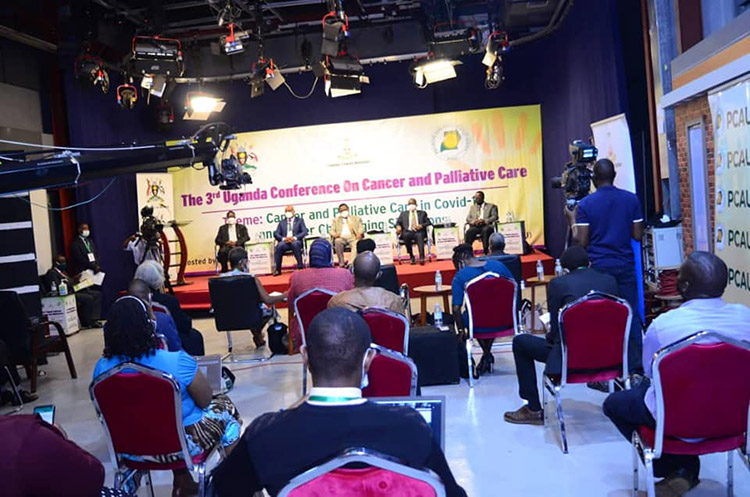
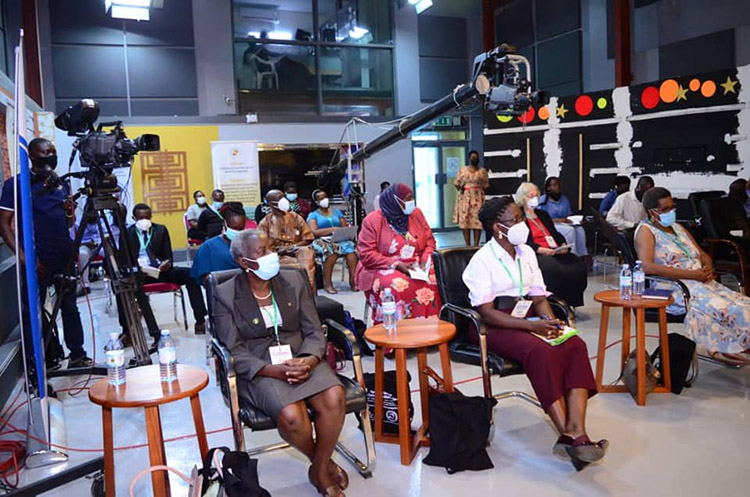
Due to the pandemic and current lockdown measures, the conference originated from the Uganda Broadcasting Corporation’s studio and was broadcast across the country.
Due to the pandemic and current lockdown measures in Uganda, the conference was held virtually and in collaboration with the Uganda Broadcasting Corporation (UBC). The conference proceedings were televised throughout Uganda, and the production quality was impressive. Even more impressive was the outstanding content from presenters from Uganda and across the globe! The program included 13 plenary presentations, 2 panel discussions, 33 abstract presentations, 2 workshops and 21 poster presentations.
The conference participants were welcomed by a message from Dr. Tedros Adhanom Ghebreyesus, Director General of the World Health Organization (WHO). In his keynote address, he noted the disruption that the COVID-19 pandemic has caused in cancer control around the world – fewer people with cancer are seeking and receiving care. He further noted the pandemic has demonstrated why universal health coverage must remain a top priority built on resilient health systems that can continue to deliver essential health services such as cancer and palliative care, even in the most severe crisis.
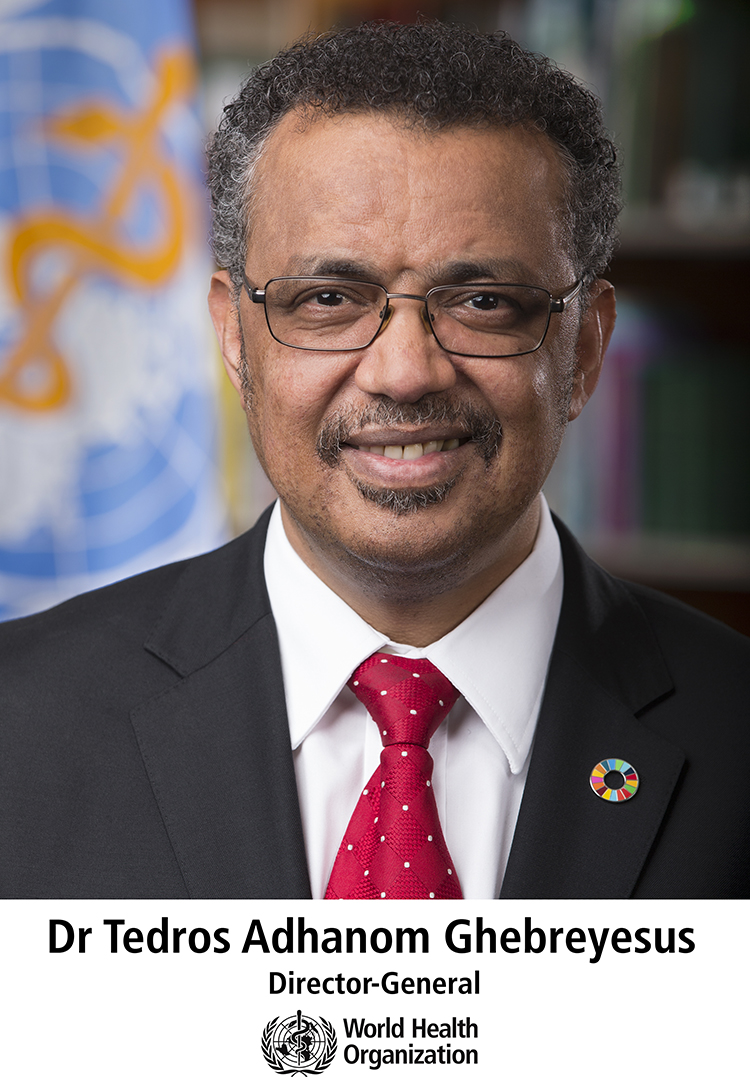
Dr. Tedros applauded Uganda for finalizing its cancer plan and their innovative approach used to maintain essential services during the pandemic. He also acknowledged the country’s leading role in palliative care, especially in capacity strengthening and access to essential medicines.
The program was rich and varied with topics such as: health systems strengthening and financing for cancer and palliative care, implications of the COVID-19 epidemic on universal access to palliative care service and innovation and creativity in providing care to vulnerable populations. Cyndy Searfoss, director of partnerships for Global Partners in Care, gave a presentation on strengthening access to cancer and palliative care through international collaboration. Annette Deguch, Center for Hospice Care (CHC) bereavement counselor, gave a presentation on yoga and mindfulness during a session on caregiver resilience and sustainability of cancer and palliative care services. Panels highlighted the experiences of health care providers and their observations, lessons learned and recommendations for mitigation of possible future emergencies.
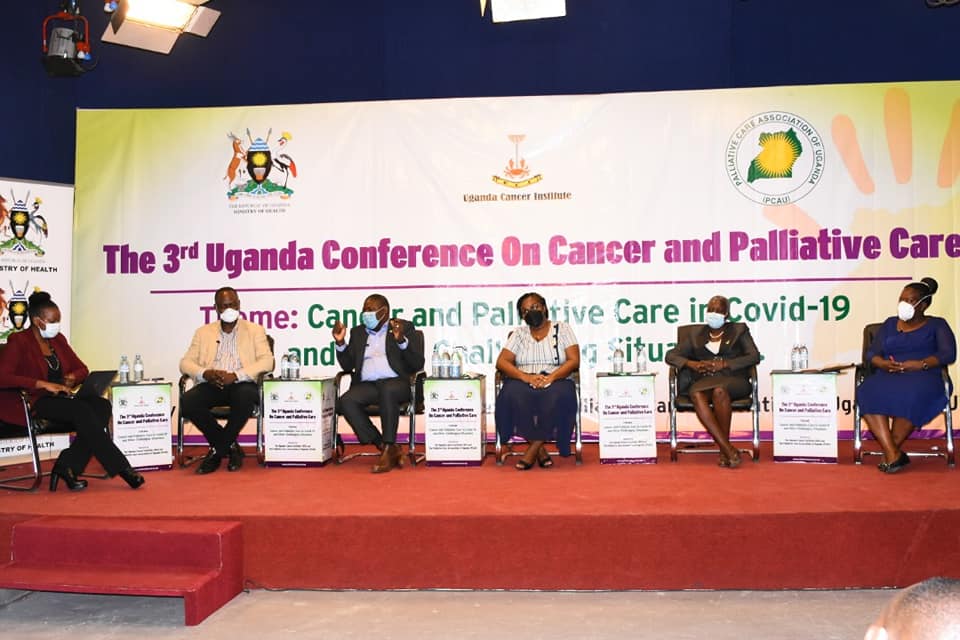
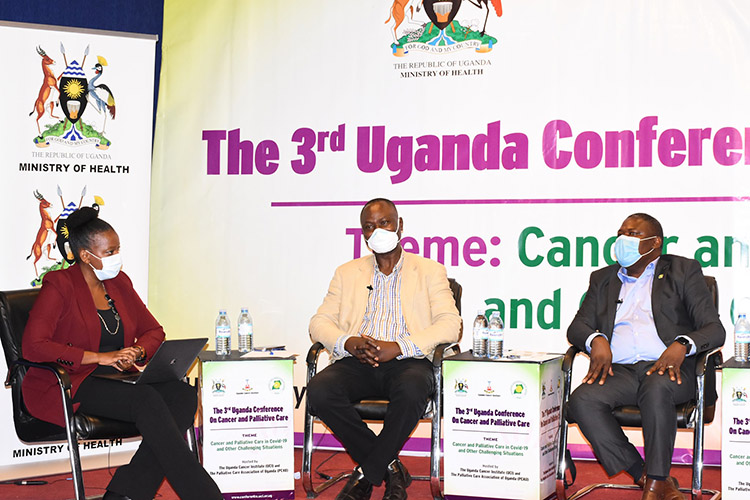
Building on the partnership’s collaborative mHealth project, a workshop was held on improving national data collection in palliative and cancer care. The session was co-chaired by Lacey Ahern, Hospice Foundation manager of international programs and Dr. Miriam Ajambo, senior medical officer and palliative care focal person for the Uganda Ministry of Health.
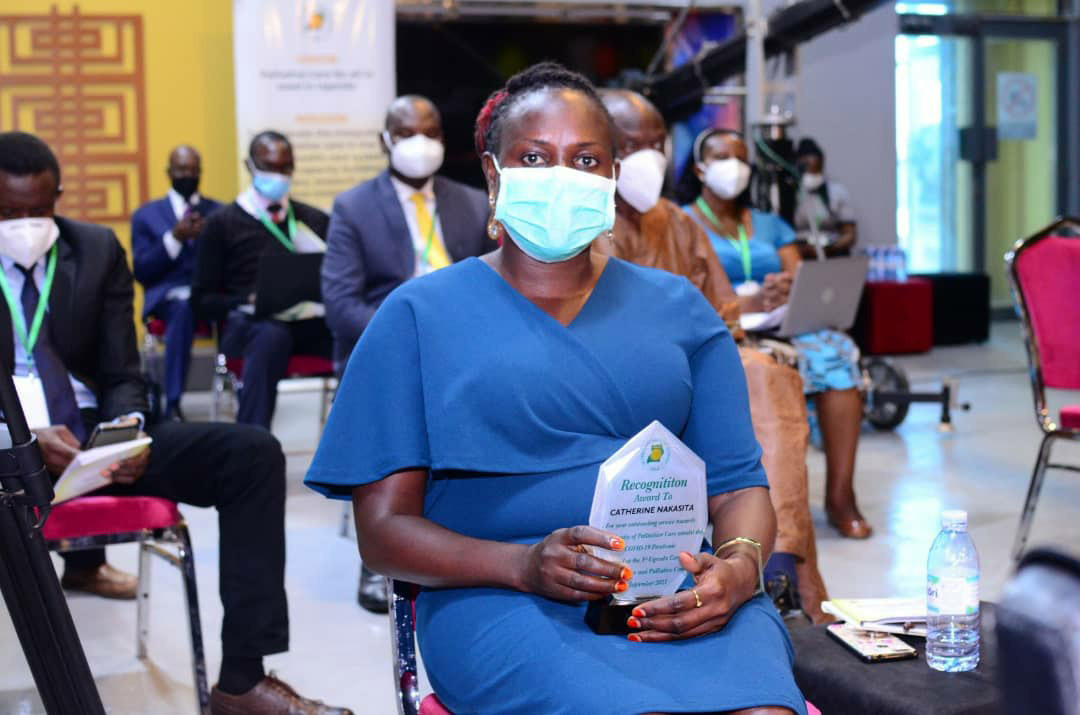
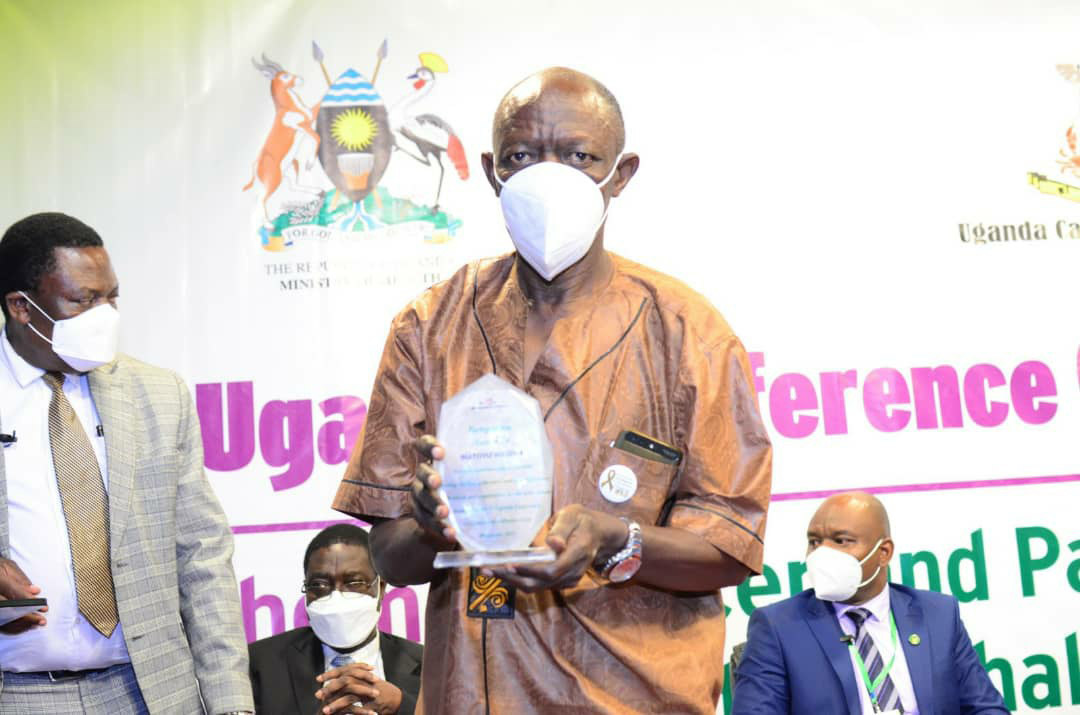
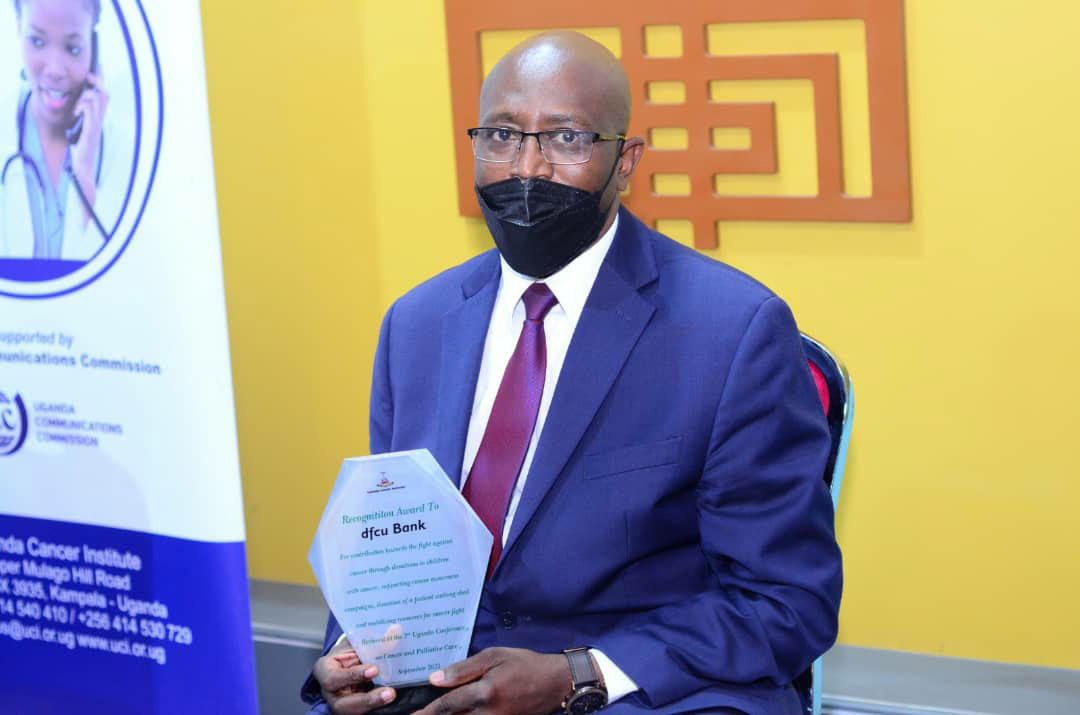
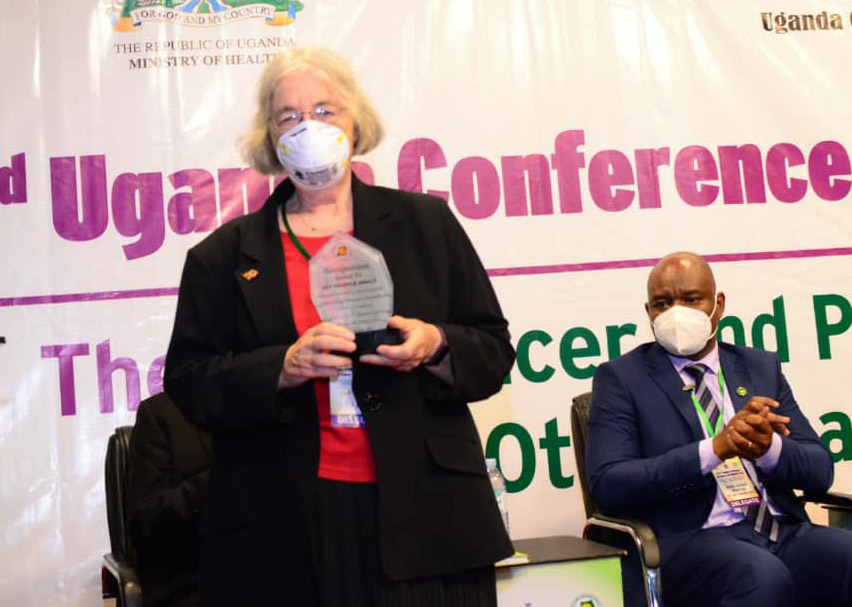
Several individual and organizational awards were given, recognizing champions in cancer and palliative care. Joy Hospice of Mbale was recognized for their outstanding response to dealing with the first COVID-19 case in Uganda, a situation that spotlighted the importance of hospices during the pandemic. Dr. Barnabas Atwiine of Mbarara University of Science and Technology (MUST) was awarded best oral abstract for his research, “Money was the Problem: Caregivers’ self-reported reasons for abandoning their children’s cancer treatment in Southwest Uganda.”
The collaboration with UBC was a great opportunity to extend information about cancer and palliative care across the country (and beyond) to a broad audience. There is no way to know for sure how many watched the conference on TV, but online attendance was over 350. Among those were 14 satellite viewing hubs at regional referral hospitals across Uganda. CHC was honored to participate in this excellent conference and pleased to be a conference co-sponsor for the fifth time.
Many thanks to the entire conference organizing committee, other sponsors, UBC and the volunteers who made this conference possible.
